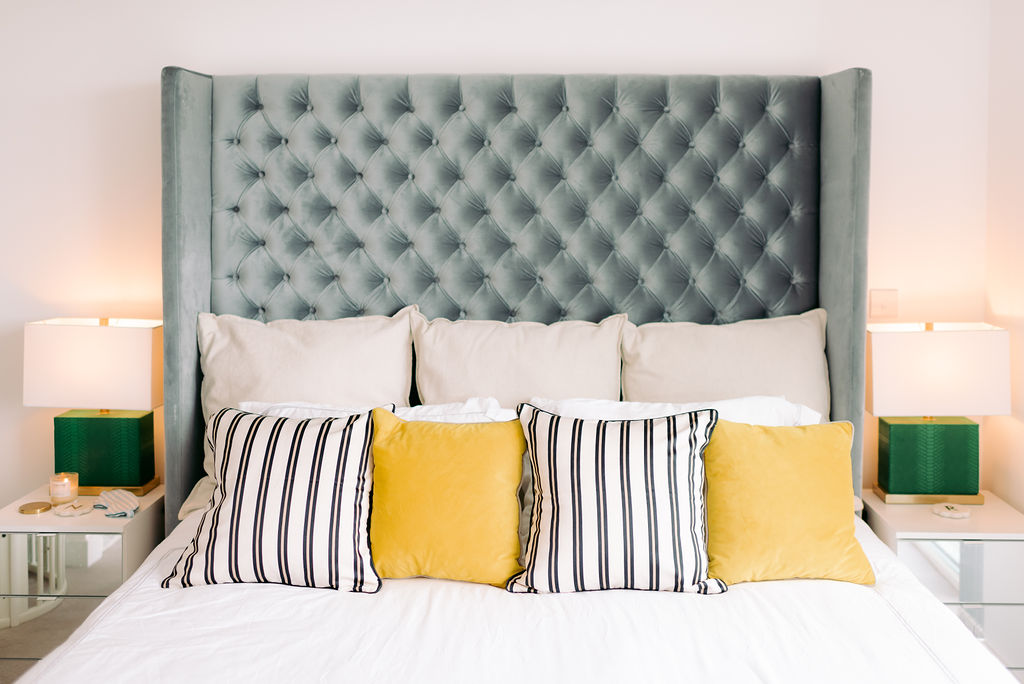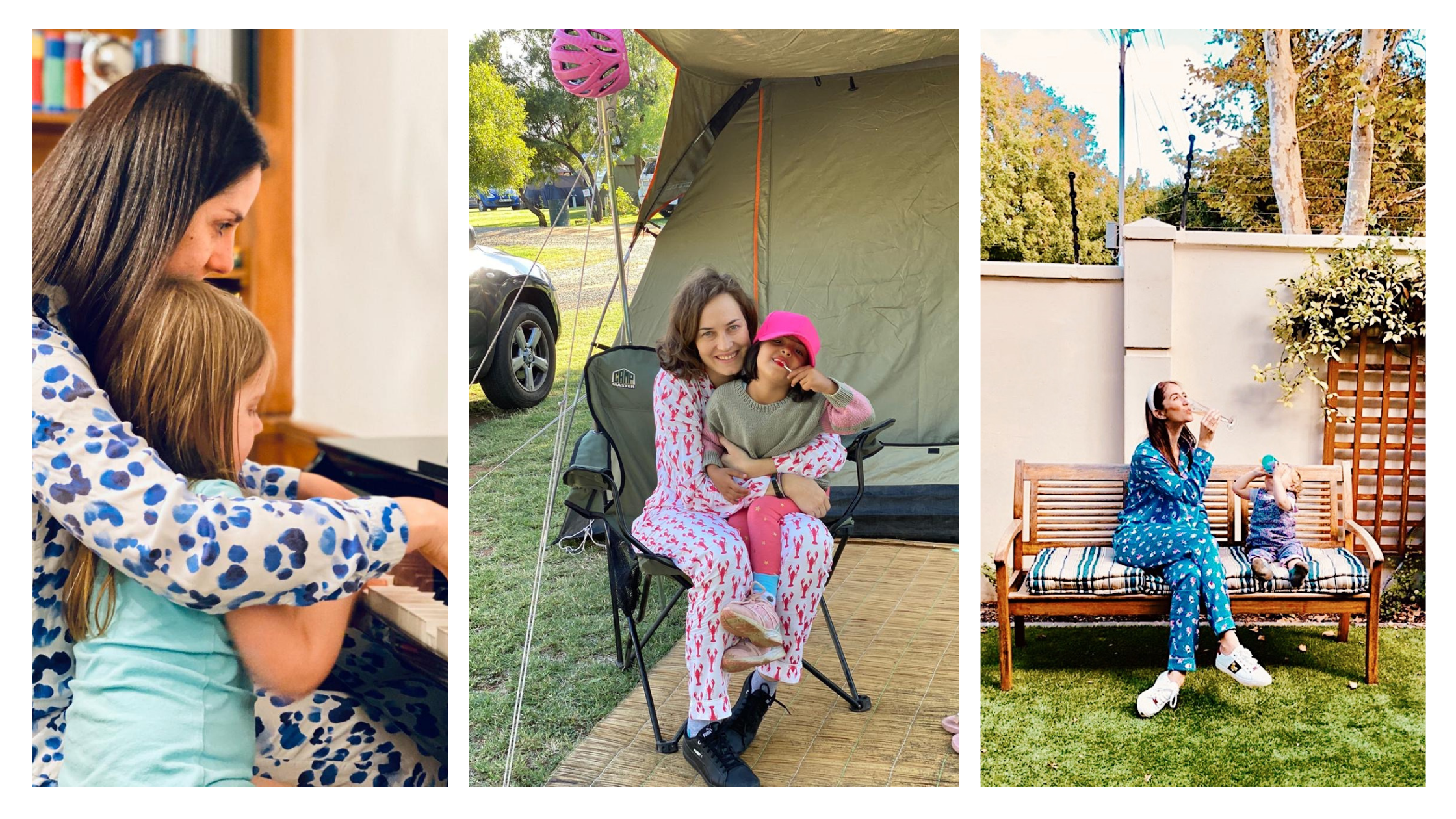Simple Ways to Create the Ultimate Sleep Environment

Breaking news! 30 percent of the general population suffers from some form of sleep disruption and 10 percent suffer from insomnia. Those are not small numbers friends. And in these not-so-certain times, more and more of us are finding it difficult to get a good night’s sleep. If that's you, not to worry, we’ve got a whole host of handy tips to help you sort your sleeping problems for good, by creating the ultimate sleep environment. Here goes:
Adjust The Temperature
Room temperature can impact your quality of sleep. You’re more likely to have a successful night of sleep when your bedroom’s temperature is between 18 and 22 degrees. Sleep is also more likely to happen when your core body temperature decreases rather than increases, setting the tone for a good night’s sleep. Make sure your room is nice and cool to help your body catch some zzz’s.
Adjust Lighting
The lighting of your room matters! Light has the ability to stimulate and encourage wakefulness of the mind and body. This is because your body’s “sleep clock” synchronises sleep-wake cycles. Studies show that evening light before bedtime can suppress melatonin levels, your body’s natural sleep hormone. Further studies revealed those who were exposed to bright lights fell asleep slightly later than those not exposed. Try turning down the lights one hour before bedtime to assist your body in its natural progression toward sleep.
Use A Sleep Mask or Blackout Blinds
This goes hand-in-hand with adjusting lighting. If you need further assistance creating a dark sleep environment, invest in a sleep mask or blackout blinds which help you associate with feeling rested. When choosing a sleep mask, choose one that is soft, comfortable and flexible. We’ve got some comfy sleep masks right here that might just do the trick. If you prefer to use blinds, blackout blinds are designed to block out light so you can stay in that deep sleep uninterrupted.
Put Your Phone Away
It’s tempting to scroll through social media or send that last email before bed but light from your mobile phone can make it harder to fall asleep. Blue light from your mobile device suppresses your body’s ability to produce melatonin and increases the feeling of wakefulness by delaying REM sleep, which is an essential phase in sleep that makes you feel rested. Your mobile phone also keeps your mind engaged which is not desired for pre-bedtime relaxation. Try to stay off of your phone at least one hour before bed to wake up bright-eyed and bushy-tailed.
Create A Routine
These unprecedented times have gotten us out of our daily routines. Whether you’re working from home or at the office, it’s important to have and keep a daily routine. You should also have a wind-down routine and sleep schedule as they are essential in creating the perfect sleeping environment. Give yourself one hour of quiet time before bedtime to prep your body for sleep.
Manage Stress And Anxiety
Anxiety and stress are two common problems that can make it difficult to get to bed. Both anxiety and stress can have a negative impact on your body’s ability to fall asleep and activate your nervous system’s “fight or flight” response. If you find yourself thinking about to-do lists before bed, jot down any tasks and set aside “worry time”.
Avoid Alcohol
Re-think having that glass of wine before bed. Alcohol before bedtime has the potential to give you a burst of energy which is not ideal before sleep and can make you feel lethargic in the morning. Alcohol is also a diuretic which means it filters through your kidneys, quickly causing you to wake up in the middle of the night for a toilet visit.
Avoid Exercising Before Bed
If you have more energy and decreased physical activity due to lockdown, you may find exercise gives you energy needed to get through the day. While it’s great to get outside and keep your body moving, exercise before bedtime can decrease your body’s melatonin levels. If evening workouts are your thing, workout a few hours before bedtime to give your body time to wind down.
Consider Your Mattress
Is your mattress too soft or too firm? The quality of sleep you get is dependent on your mattress. Your sleep can easily be impacted if your mattress isn’t comfortable. If your mattress is too soft it will not support the natural curvature of your body, causing back pain. If your mattress is too firm, it distorts your lower back and puts pressure on your shoulders and hips. Also, aim to replace your mattress every 7-10 years to promote healthy sleep.
Hope this helped? Sweet dreams friends...
Written by Ashlynn Propes



